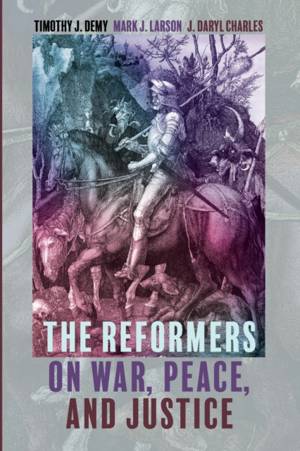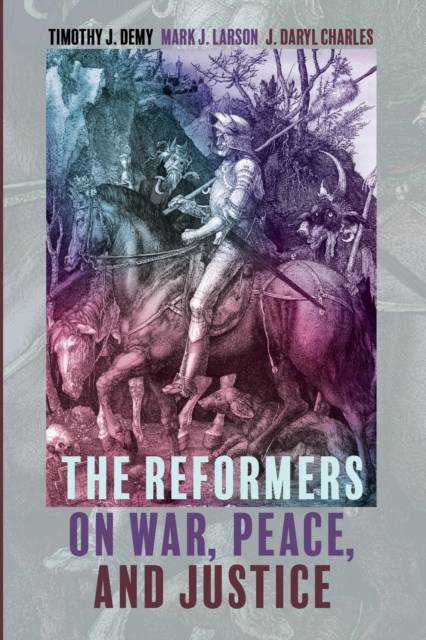
- Afhalen na 1 uur in een winkel met voorraad
- Gratis thuislevering in België vanaf € 30
- Ruim aanbod met 7 miljoen producten
- Afhalen na 1 uur in een winkel met voorraad
- Gratis thuislevering in België vanaf € 30
- Ruim aanbod met 7 miljoen producten
Zoeken
The Reformers on War, Peace, and Justice
Timothy J Demy, Mark J Larson, J Daryl Charles
Paperback | Engels
€ 39,45
+ 78 punten
Uitvoering
Omschrijving
Conflict and war were common during the Reformation era. Throughout the sixteenth century, rising religious and political tensions led to frequent conflict and culminated in the Thirty Years' War (1618-48) that devastated much of Germany and killed one-third of its population. Some of the warfare, as in central and southern Europe, was between Christians and Muslims. Other warfare, in central and northwestern Europe, was confessional warfare between Catholics and Protestants. Religion was not the only cause of war during the period. Revolts, territorial ambitions, and the beginnings of the contemporary nation-state system and international order that emerged after the Treaty of Westphalia (1648) also fueled the trauma and tragedy of war. In many ways, the world of the Reformers and Protestant Reformation was a violent world, and it was within such a sociopolitical framework that the Reformers and their followers lived, worked, and died. This book introduces the teachings of the Protestant Reformers on war and peace, in their context, before offering relevant primary source readings.
Specificaties
Betrokkenen
- Auteur(s):
- Uitgeverij:
Inhoud
- Aantal bladzijden:
- 194
- Taal:
- Engels
Eigenschappen
- Productcode (EAN):
- 9781498206976
- Verschijningsdatum:
- 23/09/2019
- Uitvoering:
- Paperback
- Formaat:
- Trade paperback (VS)
- Afmetingen:
- 152 mm x 229 mm
- Gewicht:
- 267 g

Alleen bij Standaard Boekhandel
+ 78 punten op je klantenkaart van Standaard Boekhandel
Beoordelingen
We publiceren alleen reviews die voldoen aan de voorwaarden voor reviews. Bekijk onze voorwaarden voor reviews.











